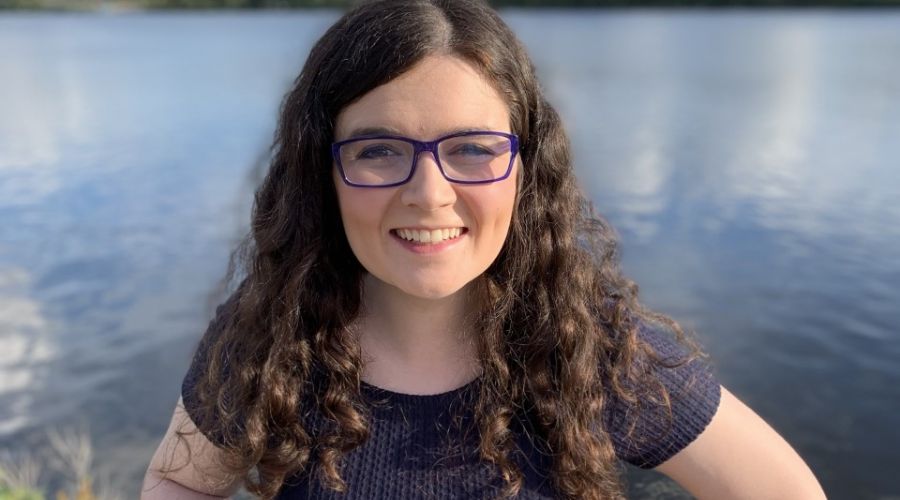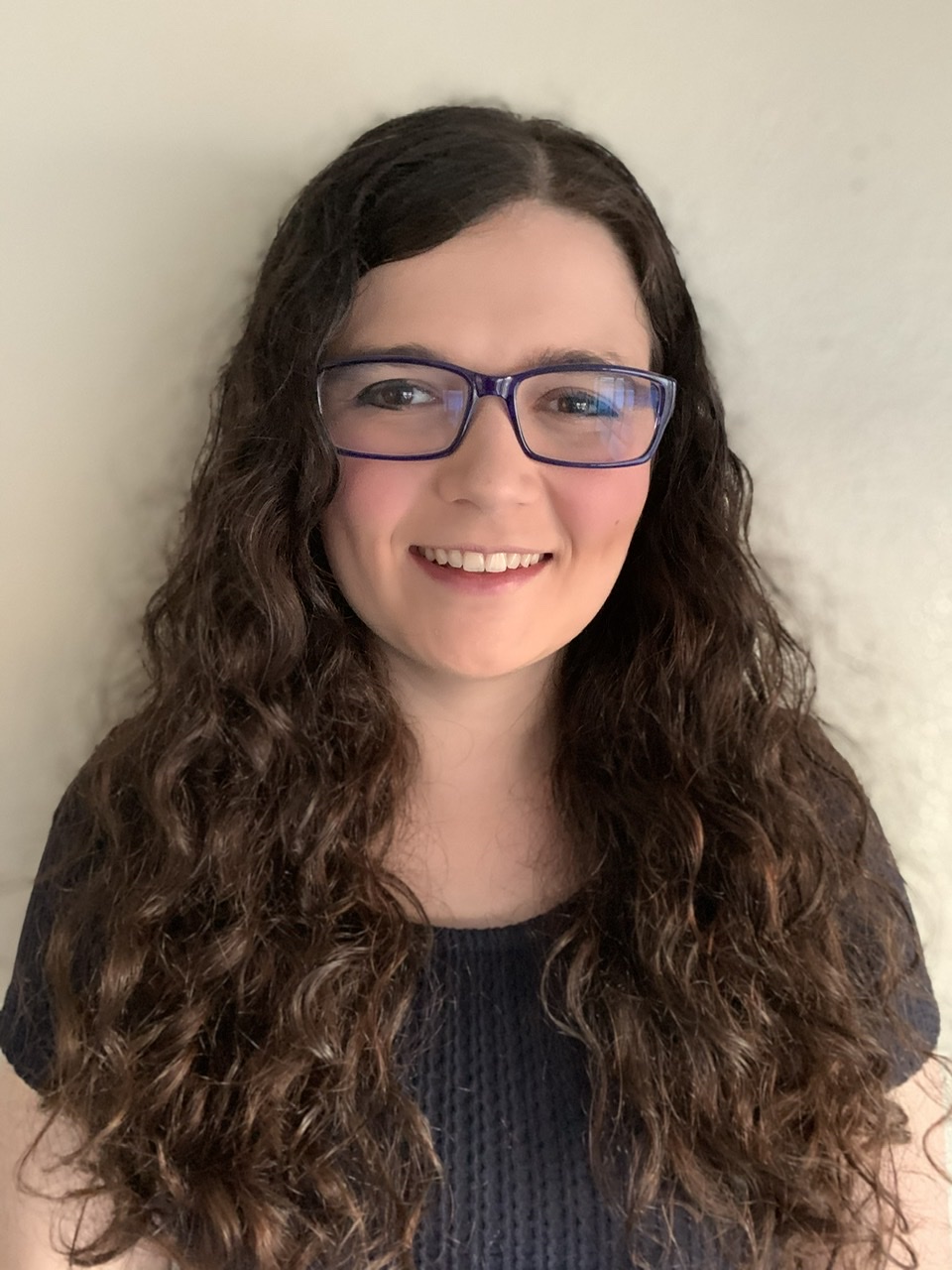
Scholar-Elect Lyndie Zollinger's PhD will attempt to understand and prevent knee damage caused by everyday activities.
As we are better able to understand and prevent damage, patients’ lives will improve and we may even illuminate ideal treatment paths for existing damage.
Lyndie Zollinger
Lyndie Zollinger’s PhD on knee damage is personal. In 2018, she took part in a team building challenge at MIT which involved making a human-powered hamster wheel. She was worried the wheel wasn’t safe and was told it had been tested. However, it fell over and landed on her leg, causing microfractures in all four bones around her knee. She spent a few months in a wheelchair while it healed. “It really opened my eyes to the way engineering can be used for medical purposes,” says Lyndie. It is due to her experience that she wanted to work on knee problems.
For her PhD in Engineering, which she begins in the autumn, Lyndie will study knee force loading in everyday activities and its effects on knee damage and injuries. To do so she will combine image analysis techniques with mechanical modelling to expand the range of scenarios in which knee loading analysis is possible. The aim is to understand, characterise and predict various ailments of the knee in day-to-day activities. She says: “As we are better able to understand and prevent damage, patients’ lives will improve and we may even illuminate ideal treatment paths for existing damage.” She will be collaborating with an orthopaedic surgeon to provide practical solutions to patients. “Things in Cambridge are very integrated between engineering and medicine which is very exciting,” she says.
Missionary
The focus on doing something practical to help improve people’s lives is central to Lyndie’s upbringing. Born in Utah, the youngest of four children, service was a big part of her family background. After her first year of undergraduate studies at MIT she took one and a half years out to work as a missionary for the Church of Jesus Christ of Latter-day Saints. She says the experience taught her a lot about people, how to listen to them and help meet their needs. “It made me see the different ways I could use my skills to help other people and shaped how I have approached everything since,” she says. She did her missionary work in Denver, Colorado. The work included going into the community and talking to people about her beliefs and offering to help those in need, such as refugees.
Having that time out of college also gave her the change to think more deeply about the subject she wanted to pursue. Lyndie had always been more interested in science and maths at school and took part in science fair projects.
Where she lived it was common for women to mainly go to university to meet their husbands. Growing up she did not know any women in her neighbourhood who had a career. However, while she was in high school a woman who had a PhD in Biochemistry moved into the area. She worked in a genetics laboratory. “She helped me see that it was ok to like maths and science and possibly to have a career,” says Lyndie. While she was in high school therefore she started working in a research laboratory at the University of Utah and through that experience applied to MIT and received a scholarship to study there.
She planned to major in Chemistry, but by the end of the first year she realised it was not for her. She tried other subjects, including neuroscience, psychology and maths before arriving at mechanical engineering after a maths class focusing on how equations can be used to describe how a door opens and shuts.
Robotics and engineering
She had almost no background in the subject, but had started a robotics team at high school. Most of her time then had been focused on fundraising, but when she returned from her missionary work she was able to really get into mechanical engineering and to use maths in a way that helped others. “I found my happy place, spending hours and hours figuring out how to make things move,” she says.
It was strange going back to MIT in early 2017, but she hit the ground running and started her first research project. Over the summer she worked on two projects, one developing a website to help computer science students teach refugees and the other involving helping students to visualise complex concepts in mechanical motion.
Lyndie has been working on many other projects since then, but recently changed focus. She is currently working on developing an assistive diaphragm using robots made out of silicon that move in relation to changes in pressure, following the patterns of a human diaphragm. This could help people with muscular dystrophy and others with problems related to the diaphragm. She was just about to test her silicon actuators when her university was closed due to Covid-19 so she has been forced to work instead on data analysis, analysing the assumptions made at the beginning of the project.
Lyndie is looking forward to starting her research at Cambridge, but her knee injury at MIT is not the first serious injury she has sustained. When she was at school she was on the volleyball team and competed in national tournaments across the US and in international competitions. However, she suffered a serious shoulder injury and concussion at the end of high school and, having anticipated getting a volleyball scholarship to university, she had a lot of time to think and explore new avenues while she was recovering, which led her to MIT.
What has been important is the way she has dealt with her injuries. When it comes to her research at Cambridge, she says: “It’s very personal to me. Although you do not have to have a personal relationship to your research, it makes me aware that we have a responsibility to help.”

Lyndie Zollinger
- Scholar
- United States
- 2020 PhD Engineering
- Churchill College
I was raised in Utah with a love for learning, teaching, building, and medicine. I liked to push the limits of what my community told me was possible; this led me to MIT, where I graduated in Mechanical Engineering. During a class activity at MIT, my knee was injured when a giant hamster wheel fell on top of me. This fueled my passion for studying medical challenges from a mechanical perspective. As an undergraduate, my research projects have included an assistive diaphragm for patients with respiratory muscle diseases through MIT and an implantable sensor for the brain at the University of Auckland. At Cambridge, my PhD research focuses on increasing the availability of gait analysis for injury diagnosis, treatment, and monitoring. My current research combines portable low-cost imaging techniques with biomechanical modelling to analyse motion patterns, detect abnormalities, and identify specific knee injuries in humans and dogs. This portable and low-cost method of gait analysis has the potential to enable GPs, physiotherapists, and other medical professionals to assess patient gait without the need for referral to specialized, expensive, and often overwhelmed gait clinics. This can help assess patients more quickly and reduce patient backlogs. This method will also enable at-home monitoring of patients as they recover from injuries, which can improve patient outcomes and ensure they stay on track for a normal recovery. As I pursue a PhD and academic career in biomechanics, I also want to continue mentoring and inspiring more girls to pursue their dreams in STEM fields. I am honored to be a part of the Gates Scholars community and look forward to learning and sharing all I can with this incredible group.
Previous Education
Massachusetts Institute of Technology Mechanical Engineering 2020












